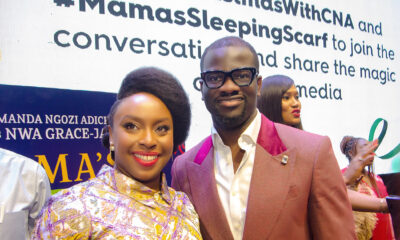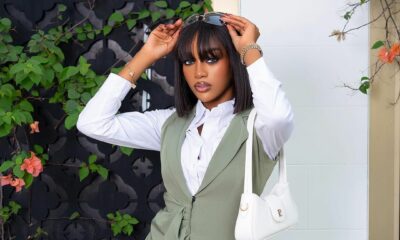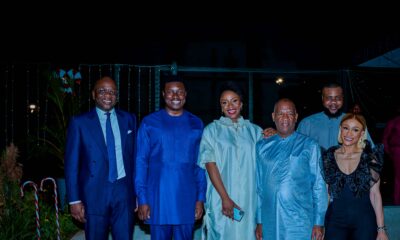News
Chimamanda Ngozi Adichie Talks writing about a Fat Woman, Anti-Gay Laws & Natural Hair

Chimamanda Ngozi Adichie‘s best selling new book – Americanah is centered on love, race and black hair. Over the past few months, the Nigerian author has been promoting the novel in Nigeria, America and the UK.
In an interview with The Rumpus, she speaks on being a fat woman in Nigeria and America, her thoughts on the laws passed against homosexuals and why black hair should be equally glamourized in the media.
Read excerpts;
On writing about a fat woman, who has ideas, sex and a voice: “I am interested in challenging the mainstream ideas of what is beautiful and what is acceptable. I think U.S. culture, in particular, demonizes weight in a way that I find disturbing. Being Nigerian—well, Nigeria is changing because everybody is watching America’s Next Top Model—but in general, Nigeria is not a culture that demonizes weight. When I think about “fat”, and the idea of self-censorship and language and the fact that “fat” is a bad word in America, I wanted to challenge it and poke fun at it. Why can’t fat just be a description? With Ifemelu, I wanted to talk about gender expectations and ideas of what’s attractive and who can be attractive. In the novel, Ifemelu doesn’t want to call Obinze because she wants to lose weight first, and of course she finally does, and actually he finds it very attractive that she’s not skinny, as do many people in the world. This homogenizing idea of what’s attractive in people’s real lives is not true.”
On speaking out about Nigeria’s laws against homosexual: “I did it because I wanted to start a conversation, and I wrote it particularly for a Nigerian audience and particularly for my generation of Nigerians. People talk about homosexuality in a way that is devoid of humanity. I think there are many Nigerians who are good and kind people, who hadn’t quite sat down to think about how deeply inhumane and unjust this law is. It’s very easy to alienate people when talking about something like this because Nigeria has become increasingly conservative in religion and religiosity. People close off as soon as you bring up the word. I knew that I would get a lot of negative pushback, but there’s no way I couldn’t speak about it. I had to.
People have told my family to tell me to keep out of this and stop supporting the gays. For every ten people who think and say that, there is also one person who says homosexuals should not be jailed or harassed. And that one person out of ten or out of twenty makes it worth it.”
On black characters in the Americanah, who are removed from everyday black life because they have made it: “I was coming from a place of wanting to ask questions. What I’m struck by in the U.S., with American blacks, is that success and acceptance comes with an exceptionality card, so that in some ways these people are no longer black and that is when they become magical. Think about Oprah. In a way, they can do well or be accepted into these incredibly racist spaces and not be seen as black, and I find that quite interesting.”
On Ifemelu’s Hair Journey: “Americanah is many things, but the major point is that it is about a woman who comes into her own. Hair, which, by the way, for me in a personal sense is also important, because my journey started where I thought of my natural hair as unattractive, to now being ridiculously pleased about having kinky hair. There’s a larger political statement about the need for black women to have different kinds of beauty. It’s about black women all over the world, not just the U.S., being told they cannot wear their hair the way it grows on their head. The world tells them it is unprofessional and untidy. I want us to have a world where black women’s natural hair is an equal option.”

























